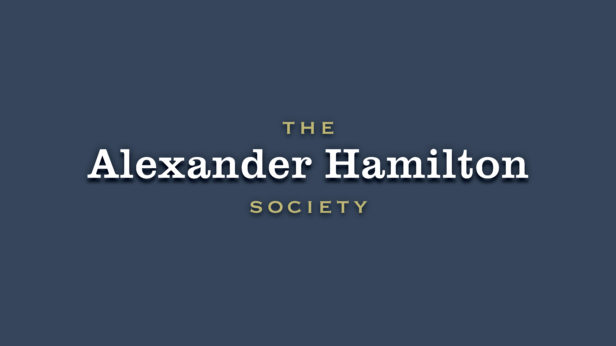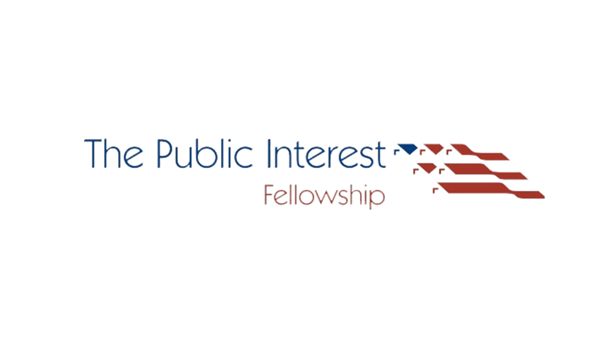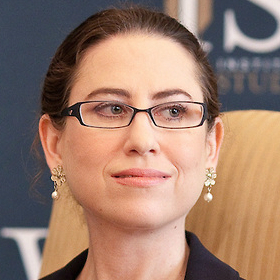The Iranian Challenge
Consider the strategic options for dealing with Iran’s nuclear program.
Fall 2020 – Spring 2021
Washington, DC
Since the Islamic Revolution of 1979, the Islamic Republic of Iran has been a critical challenge for American policymakers, turning from friend to foe overnight. In the ensuing four decades, nearly every American president has had an Iran-related crisis help define his presidency. Over the course of the seminar, fellows will gain a clear understanding of the history of America’s relationship with Iran and take an in-depth look at the ideological nature of the Iranian regime. They will delve into the challenges the regime presents to the United States, from its nuclear program to its regional ambitions to its oil diplomacy.
Taught by leading scholars in the field, SSS will consist of 15 evening sessions that meet from September-May and will afford participating fellows an opportunity to gain a breadth of knowledge on critical subjects, forge relationships with senior scholars and practitioners, sharpen analytical frameworks through written and oral arguments, and build a cohort with their peers. Through the lens of strategic competition with Iran, fellows will examine:
What are our goals and how do we achieve them?
What does the strategic competition look like? What are we competing over?
What do we need to understand about our adversary in order to achieve our goals?
Images from Official website of the President of the Islamic Republic of Iran
Michael Doran on America, Israel, & the Middle East
Assigned Reading:
Discussion Questions:
Assigned Readings:
Discussion Questions:
Assigned Readings:
Discussion Questions:
Assigned Readings:
Discussion Questions:

In partnership with the Alexander Hamilton Society and the Public Interest Fellowship, we are pleased to sponsor in-depth educational opportunities for public policy professionals in Washington, DC. Ideal candidates are 25- to 35-year old professionals working in national security and foreign policy institutions and organizations, such as government, academia, think-tanks, media, defense and intelligence communities, etc.

The Alexander Hamilton Society is a nonpartisan, not-for-profit, national organization that seeks to identify, educate, and launch young men and women into foreign policy and national security careers imbued with the Hamiltonian perspective of strong and principled American leadership in global affairs.

The Public Interest Fellowship provides exceptional young men and women with professional opportunities and a continuing education in the tradition of freedom. The unique combination of work and study is designed to advance fellows’ pursuit of careers devoted to enriching the political and cultural life of the United States.

Michael Doran
Michael Doran, an expert in U.S. policy toward the Middle East, radical Islam, and the Arab- Israeli conflict, is a Senior Fellow at the Hudson Institute in Washington, DC. He has also held a number of senior U.S. government posts related to Middle East policy and strategic communication.

John R. Allen
John R. Allen is President of the Brookings Institution and a retired U.S. Marine Corps four-star general. He previously served as commander of the International Security Assistance Force in Afghanistan and special presidential envoy to the Global Coalition to Counter ISIL.

James M. Dubik
LTG James M. Dubik (U.S. Army, Ret.) is a Senior Fellow at the Institute for the Study of War and a Professor at Georgetown University’s Security Studies Program. General Dubik has extensive operational experience in Iraq, Afghanistan, Japan, Korea, Thailand, Bosnia, Haiti, Panama, and in many NATO countries.

Frederick W. Kagan
Frederick W. Kagan is a Senior Instructor with the Hertog War Studies Program at the Institute for the Study of War. The author of the 2007 report “Choosing Victory: A Plan for Success in Iraq,” he is one of the intellectual architects of the successful “surge” strategy in Iraq. He is the director of AEI’s Critical Threats Project.

Kimberly Kagan
Kimberly Kagan is a Senior Instructor with the Hertog War Studies Program and founder and president of the Institute for the Study of War. She is a military historian who has taught at the U.S. Military Academy at West Point, Yale, Georgetown, and American University.

Lewis Libby
Lewis “Scooter” Libby is a distinguished fellow at the Foundation for Defense of Democracies. He has held several high level positions in the federal government related to his current work on national security and homeland security affairs. This included roughly a dozen years working in the White House, the U.S. Department of Defense, and the U.S. Department of State.
Paul Wolfowitz
Paul Wolfowitz is a scholar at the American Enterprise Institute. He spent more than three decades in public service and higher education. Most recently, he served as president of the World Bank and deputy secretary of defense.

Vance Serchuk
Vance Serchuk is Executive Director of the KKR Global Institute and an Adjunct Senior Fellow at the Center for a New American Security. Prior to joining KKR, Mr. Serchuk served for six years as the senior national security advisor to Senator Joseph Lieberman (I-Connecticut).

Robert Kagan
Robert Kagan is a senior fellow with the Project on International Order and Strategy in the Foreign Policy program at the Brookings Institution. He is a contributing columnist at The Washington Post. His most recent book is The New York Times bestseller, The World America Made.